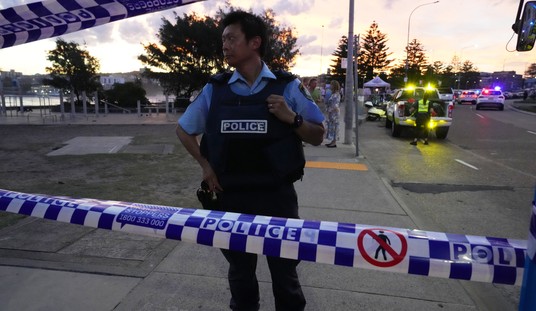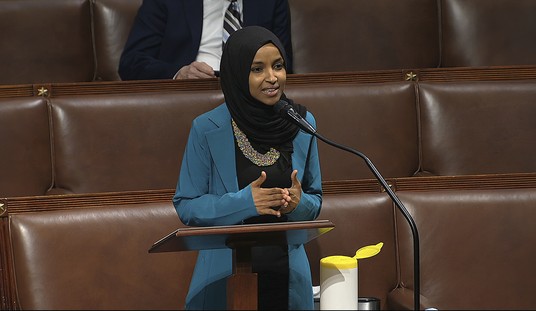Alexander Solzhenitsyn, the 88 year old patriarch of Russian literature, has granted a rare interview to the German news magazine Der Spiegel. Solzhenitsyn defends the regime of former KGB colonel Vladimir Putin, and actively supports Putins assertive – some would say aggressive – foreign policy. Solzhenitsyn recently accepted a state prize from Putin, while he rejected similar awards from Putin’s predecessors Mikhail Gorbachev and Boris Yeltsin.
Solzhenitsyn explains:
”The prize in 1990 was proposed not by Gorbachev, but by the Council of Ministers of the Russian Soviet Federative Socialist Republic, then a part of the USSR. The prize was to be for The Gulag Archipelago. I declined the proposal, since I could not accept an award for a book written in the blood of millions.
In 1998, it was the country’s low point; this was the year when I published the book ”Russia in ruins”. Yeltsin decreed I be honored the highest state order. I replied that I was unable to receive an award from a government that had led Russia in to such dire straits.
The current State Prize is awarded not the president personally, but by a community of top experts. The Council on Science that nominated me for the award and the Council on Culture that supported the idea include some of the most highly respected people of the country, all of the authorities in their respective disciplines. The president, as head of state, awards the laureates on the national holiday.”
But what about the obvious limitations that Putin and his regime are imposing on Russian society? What about the liquidation of any real opposition and competive elections? What about the attacks on the press and the widening corruption that is said to be worse than during the Yeltsin years?
Solzhenitsyn doesn’t address these issues, though he lends his support to Putin’s abolition of elections of regional leaders.
On Putin’s past as a KGB-officer Solzhenitsyn says:
”Vladimir Putin – yes, he was an officer of the intelligence services, but he was not a KGB investigator, nor was he the head of a camp in the Gulag. As for service in foreign intelligence that is not a negative in any country – sometimes it even draws praise. George Bush Sr. was not much criticized for being ex-head of the CIA, for example.”
Well, does Solzhenitsyn, in honesty, think that the Soviet Union was like ”any country”, and does he really believe in his pronounced symmetry between the two blocs during the Cold War?
Some years ago Solzhenitsyn published two volumes about the role of jews in Russian history. It caused a big debate. Some accused the writer of anti-semitism, others defended him. Here is his exchange with Der Spiegel on this issue.
SPIEGEL: Your recent two-volume work “200 Years Together” was an attempt to overcome a taboo against discussing the common history of Russians and Jews. These two volumes have provoked mainly perplexity in the West. You say the Jews are the leading force of global capital and they are among the foremost destroyers of the bourgeoisie. Are we to conclude from your rich array of sources that the Jews carry more responsibility than others for the failed Soviet experiment?
Solzhenitsyn: I avoid exactly that which your question implies: I do not call for any sort of scorekeeping or comparisons between the moral responsibility of one people or another; moreover, I completely exclude the notion of responsibility of one nation towards another. All I am calling for is self-reflection.
You can get the answer to your question from the book itself: “Every people must answer morally for all of its past — including that past which is shameful. Answer by what means? By attempting to comprehend: How could such a thing have been allowed? Where in all this is our error? And could it happen again? It is in that spirit, specifically, that it would behoove the Jewish people to answer, both for the revolutionary cutthroats and the ranks willing to serve them. Not to answer before other peoples, but to oneself, to one’s consciousness, and before God. Just as we Russians must answer — for the pogroms, for those merciless arsonist peasants, for those crazed revolutionary soldiers, for those savage sailors.”
Solzhenitsyn also addresses the worsening relationship between Russia and the West. Why is this happening?
”I can name many reasons, but the most interesting ones are psychological, i.e. the clash of illusory hopes against reality. This happened both in Russia and in West. When I returned to Russia in 1994, the Western world and its states were practically being worshipped. Admittedly, this was caused not so much by real knowledge or a conscious choice, but by the natural disgust with the Bolshevik regime and its anti-Western propaganda.
This mood started changing with the cruel NATO bombings of Serbia. It’s fair to say that all layers of Russian society were deeply and indelibly shocked by those bombings. The situation then became worse when NATO started to spread its influence and draw the ex-Soviet republics into its structure. This was especially painful in the case of Ukraine, a country whose closeness to Russia is defined by literally millions of family ties among our peoples, relatives living on different sides of the national border. At one fell stroke, these families could be torn apart by a new dividing line, the border of a military bloc.
So, the perception of the West as mostly a “knight of democracy” has been replaced with the disappointed belief that pragmatism, often cynical and selfish, lies at the core of Western policies. For many Russians it was a grave disillusion, a crushing of ideals.
At the same time the West was enjoying its victory after the exhausting Cold War, and observing the 15-year-long anarchy under Gorbachev and Yeltsin. In this context it was easy to get accustomed to the idea that Russia had become almost a Third World country and would remain so forever. When Russia started to regain some of its strength as an economy and as a state, the West’s reaction — perhaps a subconscious one, based on erstwhile fears — was panic.
SPIEGEL: The West associated it with the ex-superpower, the Soviet Union.
Solzhenitsyn: Which is too bad. But even before that, the West deluded itself — or maybe conveniently ignored the reality — by regarding Russia as a young democracy, whereas in fact there was no democracy at all. Of course Russia is not a democratic country yet; it is just starting to build democracy. It is all too easy to take Russia to task with a long list of omissions, violations and mistakes.
But did not Russia clearly and unambiguously stretch its helping hand to the West after 9/11? Only a psychological shortcoming, or else a disastrous shortsightedness, can explain the West’s irrational refusal of this hand. No sooner did the USA accept Russia’s critically important aid in Afghanistan than it immediately started making newer and newer demands. As for Europe, its claims towards Russia are fairly transparently based on fears about energy, unjustified fears at that.
Isn’t it a luxury for the West to be pushing Russia aside now, especially in the face of new threats? In my last Western interview before I returned to Russia (for Forbes magazine in April 1994) I said: “If we look far into the future, one can see a time in the 21st century when both Europe and the USA will be in dire need of Russia as an ally.”









Join the conversation as a VIP Member